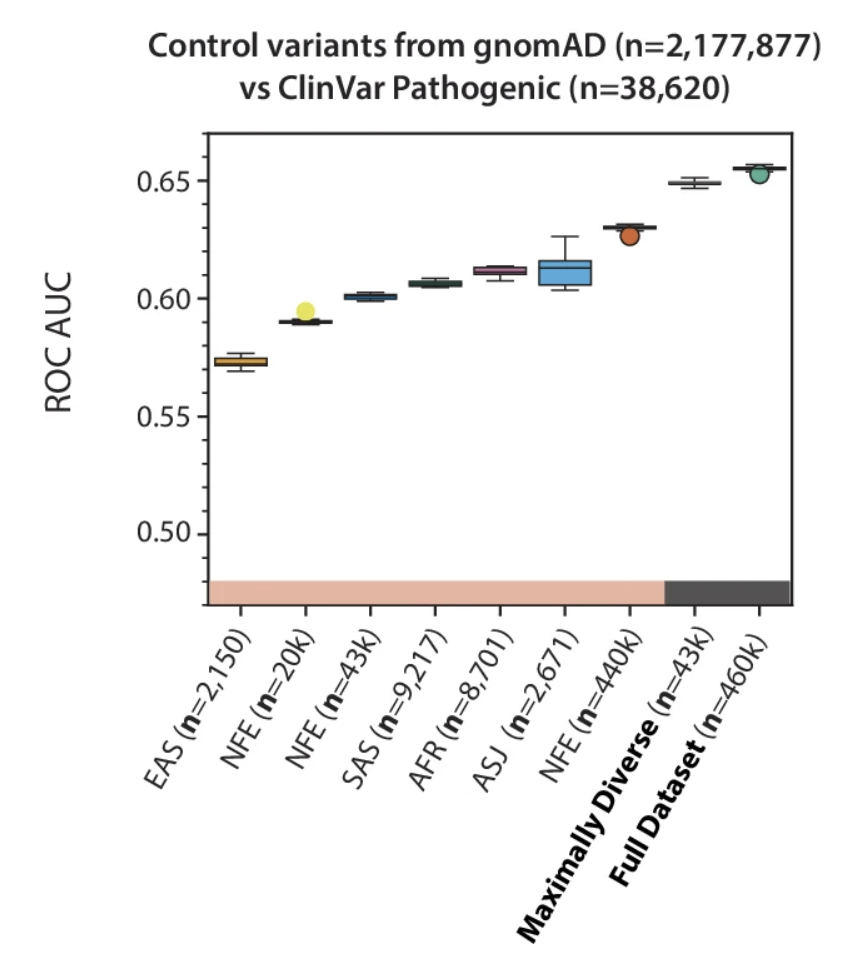Following our initial discovery linking the ITSN1 gene to both Parkinson's disease and autism, we have begun partnering with affected families to better understand how variants in this gene contribute to these conditions. We are performing detailed clinical analyses to shed light on the full spectrum of ITSN1-mediated diseases. In parallel, we have begun generating patient-derived iPSC models to define disease mechanisms and identify potential therapeutic targets.
If you or your loved one has recently been diagnosed and want to learn more or participate in our ongoing research studies, please contact Ryan at ryan.dhindsa [at] bcm.edu.

Tim Abreo and Khoa Dao joined the lab as our first post-docs! Tim will be working toward characterizing the mechanisms of ITSN1-mediated Parkinson's disease using mouse and cell models. Khoa is focused on identifying associations between non-coding variants and complex traits.
We had a joint happy hour with the Butts Lab and Tran Lab at Valhalla at Rice University! It was exciting to learn about each lab's ongoing research and potential opportunities to collaborate.
-min.jpg)
Our paper on genetic intolerance metrics was published in Nature Communications! We show how broad ancestral representation in sequencing databases is critical to improving measurmenents of genetic intolerance. Notably, we found that Missense Tolerance Ratio (MTR) trained on 43,000 multi-ancestry exomes exhibited greater predictive power than when trained on 440,000 non-Finnish European exomes. This suggests that European ancestry-based intolerance metrics are approaching saturation.
Congratulations to first author Alex Han, who started this work as an undergrad in the lab!

Ryan was named one of three Houston "Innovators to Know Right Now" for our recent work on using machine learning and AI to advance neurodevelopmental disease diagnoses. We appreciate the support and recognition of our work!
Our paper linking ITSN1 to Parkinson's disease was published in Cell Reports! We found that rare loss-of-function variants in ITSN1 increase Parkinson's disease risk by 10-fold—the largest effect size reported to date. This discovery provides new insights into the genetic architecture of PD and potential pathways for therapeutic development.
This work was made possible by an incredible collaboration between BCM, Rice University, and AstraZeneca. Huge kudos to Dhindsa Lab graduate student Chloe Sands, who was co-first author on this paper!

We are so excited to welcome Chloe Sands and Yifan Chen to the lab. Chloe was previously a technician in our lab for two years, and we are lucky to have her back as a PhD student. She plans to study the role of ITSN1 in Parkinson's disease using stem cell models. Yifan is in the BCM MD/PhD program, and he is interested in understanding the genetic architecture of sudden cardiac death.

We had a great time at the American Society of Human Genetics in snowy Denver! Our group presented one talk and four posters (two of which received the Reviewer's Choice Award!). Ryan gave a talk on the lab's recent collaboration with the Lareau Lab at MSK on HHV6 integration in the human genome. Alex Han presented an abstract on his recent work showing the importance of human genetic diversity in genic intolerance metrics. Vida and rotation student Dan Brock presented on our recent discovery of a new retinal detachment gene. Finally, Chloe Sands was co-first author with our AstraZeneca collaborators on our recent discovery of ITSN1 as a novel Parkinson's disease gene!

We enjoyed a night of food and fun at Loro! We have been incredibly lucky with our rotation students and projects, an easy reason to celebrate! (Left to right: Jasmine, Vida, Michelle, Ryan, Justin, Alex, Dan, Yifan, Chloe, Esme, Hannah)

We had a great time getting to know our first round of rotation students this semester at Van Leeuwen ice cream. With our proximity to Rice Village, it is easy to find fun places to enjoy as a group! (Left to Right: Philippe, Alex, Greg, Hannah, Vida, Michelle, Bobby, Fanwei, Jenn, Chloe, Ryan)

This grant will provide the lab $200,000 over two years to pursue a project on “Genetic resilience to Aging." Started in 2021, the goal of Impetus Grants, is to fund ideas in the that are typically ignored by traditional funders. Since then, they have deployed more than $24 million into science, supporting a number of aging clinical trials, biomarkers, novel tools, and model organisms. This round of funding was launched in August of 2023 with Hevolution and Rosenkranz foundations to focus on high-risk high-reward studies in aging science.
Read more
High-Risk, High-Reward Research program, supported by the Common Fund at the National Institutes of Health, awards new research grants to support "highly innovative scientists who propose visionary and broadly impactful meritorious behavioral and biomedical research projects." The award will provide $250,000 in direct research costs annually for up to five years and will help us develop a high-throughput framework for identifying convergent mechanisms among neurodevelopmental disease risk genes.
Read more